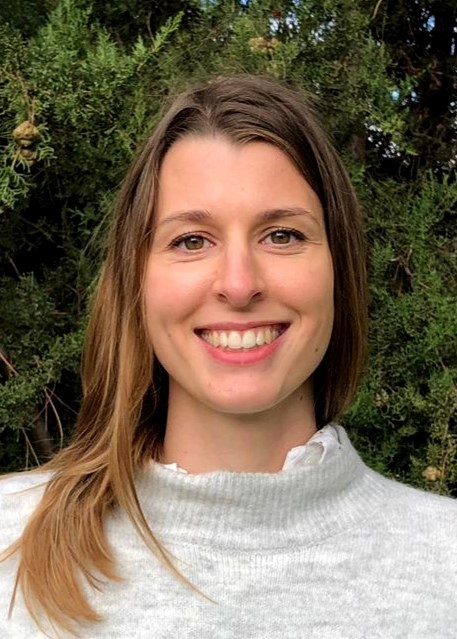Emilia Wedel
 e-mail: emiliawe@ucm.es
e-mail: emiliawe@ucm.es
twitter: @EmiliaWedel
Affiliations
University Complutense of Madrid
Department of Animal Health
Faculty of Veterinary Medicine
Avenida Puerta de Hierro s/n
28040 Madrid, Spain
Pharmacist
PhD student at University Complutense of Madrid
Antimicrobial Resistance Unit
Madrid, Spain
Education and Experience
The first two years studying Pharmacy at Westfälische Wilhelms-Universität Münster, Germany, were about gaining basic knowledge in a broad field of sciences, during which I caught my first glimpse of what it means to work in a microbiology laboratory.
Throughout the secondary studies in Pharmacy the scientific knowledge was specialized by putting it in a pharmaceutical context.
Part of that formed a project on interdisciplinary subjects called Pharmschool, in which my group focused on antiarrhythmic drugs. After the extraction of glycosides from local plants with effect on the heart, we worked on creating a rapid test to identify digoxin in medical drugs and simulated an electrical cardioversion on heart muscle cells.
After completing my university studies in April 2017, I started off doing an internship as a pharmacist at Bayer AG, Supply Center Berlin in the Department of Quality Control. For 6 months I had the chance to assist in the supervision of analytical stability programs, to plan a laboratory production transfer and take part in various GMP and compliance projects.
During a following 6-months internship at a pharmacy in Berlin, my theoretical knowledge of the manufacturing of creams, capsules and other medication prescribed was taken into practice. Furthermore, pharmaceutical law and the pharmaceutical consultation concerning customer medication was trained with emphasis. The latter of course included antimicrobial drugs and taking on the rising threat of resistant bacteria.
In June 2018 I successfully took the state examination in pharmacy law and pharma-ceutical practice.
ESR13: Tackling resistance gene transmission on farms
For some time, large conjugative plasmids were thought to be the type of plasmids that mainly contributes to dissemination of antimicrobial resistance genes. Today it is known that not only large plasmids but also small multi copy plasmids play a very important role when it comes to the spread of antimicrobial resistance of high clinical relevance. Investigating the adaptation of small plasmids in bacterial hosts and how host-specific factors facilitate the adaptation leads to knowledge about the mechanisms, which make it possible that plasmids overcome biological fitness costs and persist in different bacterial hosts.
Aims of my project are to elucidate the adaptation mechanisms of plasmids in new bacterial hosts and to understand how biological fitness cost is compensated by the bacterial host. In order to do so, I will perform stability and compensatory evolution experiments followed by the evaluation of the results via genomics and transcriptomics technologies. Furthermore, testing and identifying substances/combinations of substances that interfere with plasmid transfer and/or adaptation in the host is of special interest.
Other CARTNET Fellows
- ESR 1: Marco Albanese
- ESR 2: Anmol Adhav
- ESR 3: Vitalii Solomin
- ESR 4: Blanca María Fernández Ciruelos
- ESR 5: Kristiina Vind
- ESR 6: Valentin Waschulin
- ESR 7: Isabela Fernandes de Oliveira
- ESR 8: Yong Kai Ng (Duncan)
- ESR 9: Anaëlle Fait
- ESR 10: Frida Svanberg Frisinger
- ESR 11: Patricia Espenhain Sørensen
- ESR 12: Helena Leinweber
- ESR 13: Emilia Wedel
